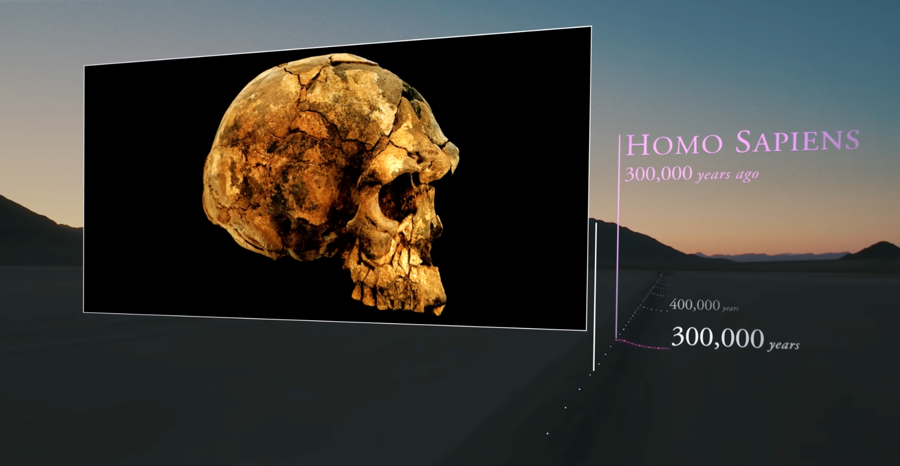Seconds, minutes, hours, days, months, years, decades, and even a century. As aging humans, we can experience this, imagine this, and to a certain extent, understand this. But how can we understand 1,000 years or one million years? What about 13.8 billion years of cosmic evolution?
Filmmakers Alex Gorosh and Wylie Overstreet ask that, and then try to visualize it on a dry lakebed in the Mojave Desert. Assisted by LED lights and friends who endured desert heat and pre-dusk rushing around to set up and capture the footage.
“We’re going to build two models: We’re going to build a model of the history of human civilization. And then we’ll build another model that shows the history of the universe. And by doing that, you can see how small we are in the history of the universe.”


“That whole history, just to get us here. I think it’s beautiful. I look at this and think, ‘This is it, man. We have one life.’ We are alive for the briefest moment, but that time is a gift from the universe. It’s a tiny moment, but what a moment. It makes you think about how you want to spend your own time and what’s important with the time you have.”

Gorosh and Overstreet created another To Scale film in 2015 by building the solar system to scale in the Nevada desert. Watch that next.
Then watch more videos that explore The Overview Effect and our place in time:
• Earth’s History Plays Out On A Football Field
• See the history of the Universe in the blink of an eye
• We Are Dead Stars. Dr. Michelle Thaller explains.
• Who was the first human?
• A Briefer History of Time: How tech changes us in unexpected ways
And, of course: Carl Sagan’s Cosmic Calendar.
via Colossal.
Curated, kid-friendly, independently-published. Support this mission by becoming a sustaining member today.

